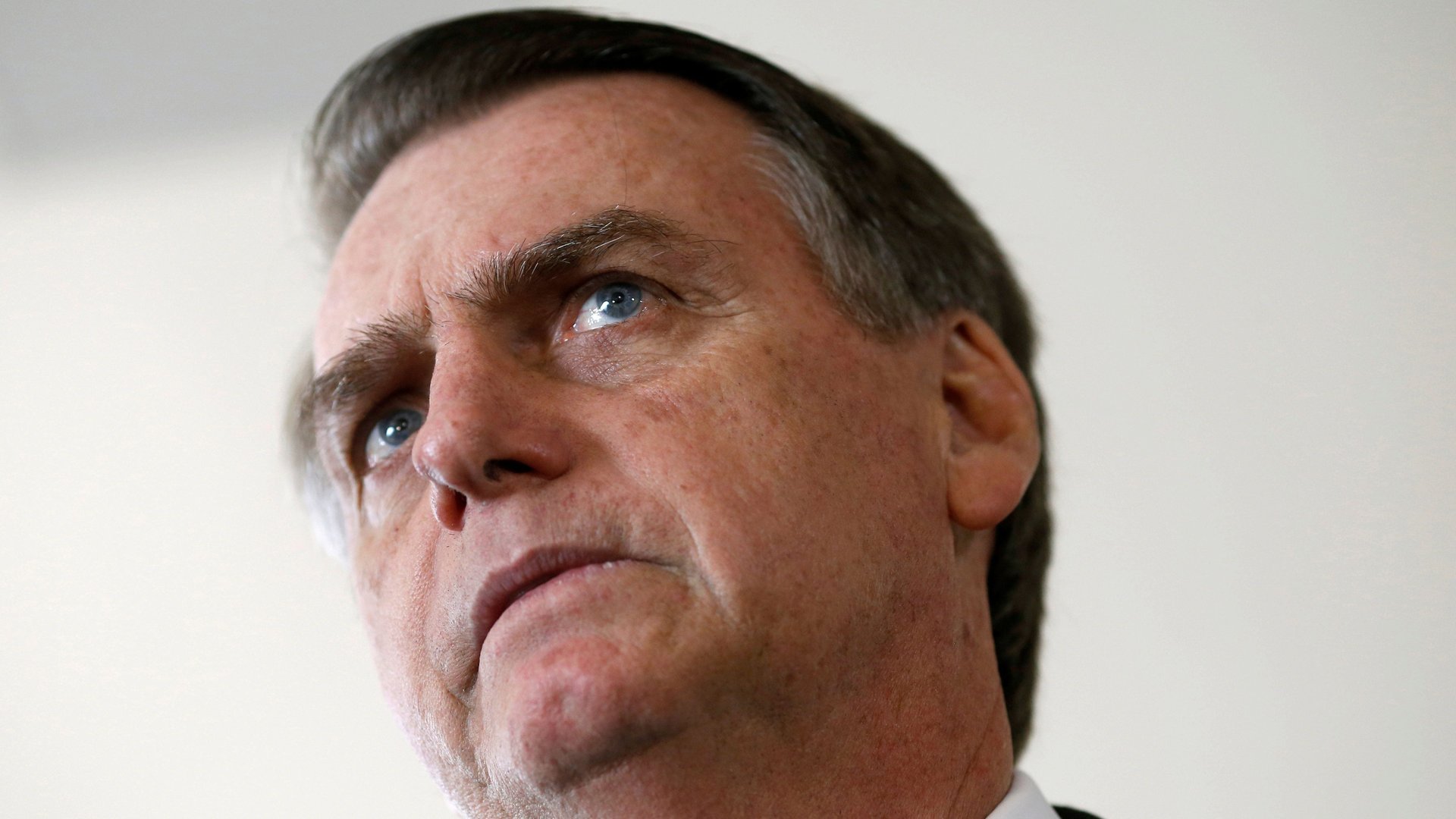The three most populous countries in the Americas will be led by populists in 2019
Jair Bolsonaro, the strident congressman who swept Brazil’s presidential elections last October, will take office on Jan. 1.


Jair Bolsonaro, the strident congressman who swept Brazil’s presidential elections last October, will take office on Jan. 1.
He’s the latest politician to join the growing club of populist leaders in the Americas. A month ago, Andrés Manuel López Obrador, known as AMLO, became Mexico’s president. He follows the most prominent populist rise of all, Donald Trump’s in the US. That puts the continent’s three largest countries—with a combined population of nearly 665 million—in control of populist governments.
To be sure, “populist” is a vague term—vague enough to wrap around such disparate characters as a businessman-turned-reality TV star, a leftist career politician, and a far-right former army captain. Still, all three leaders share a political instinct for divisiveness and a penchant for doing things their own way.
Two years into the Trump administration, those traits have fueled polarization and intensified Washington DC’s political turmoil. Will Mexicans and Brazilians suffer the same fate?
What is a populist?
The dictionary definition of “populist” is simply “a member of a political party claiming to represent the common people,” or “a believer in the rights, wisdom, or virtues of the common people.”
But that’s not how the term is being used by academics or pundits to refer to Trump and company. One working definition, used by political scientist Yascha Mounk and Jordan Kyle, a senior fellow at the Tony Blair Institute for Global Change, in a recent Atlantic article, identifies populists by two key claims they make:
- That “outsiders” are out to get the “true people.”
- And that since they represent the “true people,” populists should be unconstrained to carry out their will.
Trump, AMLO, and Bolosonaro are textbook examples of the first criterion. They all rail against different sets of outsiders—immigrants, fifís or the posh, and minorities and leftists, respectively. And Bolsonaro and Trump’s rhetoric tend to hit considerably higher in the viciousness scale than AMLO’s. But the effect is the same: sowing divisiveness among the public.
They also meet the second. The two presidents already in office have pushed through their ideas, regardless of expert opinions or protocol. Earlier this month, for example, Trump abruptly decided to withdraw troops from Syria and Afghanistan, angering both those on the left and the right. AMLO, meanwhile, cancelled a multibillion-dollar airport project, justifying his decision with a referendum deemed a sham by some observers (paywall).
Bolsonaro, too, has signaled that he intends to use his election as a license to carry out his agenda at the expense of Brazilians who don’t agree with him. After winning the first round of the presidential elections, he called the opposition “red bandits,” and threatened to put them in jail or banish them from the country.
A nostalgia-laden pitch
One populist strategy to galvanize voters frustrated with the status quo is promising a return to better times. The appeal of that pitch stems from a variety of reasons, writes Arturo Sarukhán, a former Mexican ambassador to the US, in the Mexican newspaper El Universal. In a column (link in Spanish) titled “In 2018, the past stole the future,” he lists the erosion of the social contract, the collapse of institutions that promoted social connections, media silos that keep the public divided along ideological lines, and fading memories of fascism and communism.
“Of all the challenges we have lived through in the year that ends, few are like the danger generated by the pandering of nostalgia,” he writes.
Trump, Bolsonaro, and AMLO are all seasoned nostalgia peddlers. Bolsonaro has hailed Brazil’s repressive military dictatorship from 1964 to 1985 as “a very good period.” His Mexican counterpart, meanwhile, wants to recreate the economic prosperity of the 1950s-1970s, when Mexico’s industrial policy was underpinned by import substitution. (Both men are roughly the same age, 63 and 65, respectively.)
Trump, who is 72, wants to go back to the time when “Made in the USA” was stamped on more products, and factory work produced a middle-class existence. As the American president has found out, it’s tough to force those old notions on today’s reality. His “Make America Great Again” policies have so far led to costly trade wars, in some cases, hurting manufacturers instead of bolstering them.
Brazilians and Mexicans should take note of the MAGA shortcomings.
Disdain for institutions
Populists’ disdain for institutions, however, might be their most dangerous trait, according to Mounk and Kyle. They studied the effects of 46 populist regimes since 1990, and found measurable ways in which they undermine democracy:
- A 7% decline in freedom of the press
- An 8% decline in civil liberties
- A 13% decline in political rights
In the US, the press is holding up against Trump’s outright attacks, and the court system has been reining in some of his unilateral policies.
Mexico and Brazil’s institutions are generally weaker than the US’s, though. In Brazil, for example, journalists are already being admonished to not criticize Bolsonaro, writes Oliver Stuenkel, a Getulio Vargas Foundation professor, in Americas Quarterly.
In both countries, civil society will have to step up their game to curb their new leaders’ populist impulses.